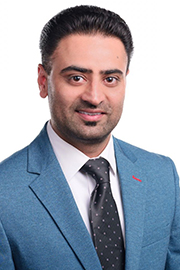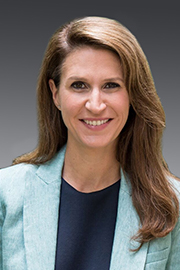- Aug/24/22 10:40:00 a.m.
My question is to the Premier.
The Guelph-Wellington Paramedic Service experienced another code red on Saturday, their 25th this year. That means there were no ambulance services available to respond to emergency calls. In July alone, code red was called 11 times.
My question is simple: Will this government increase cost-sharing with municipalities to access emergency services? Yes or no?
- Hear!
- Rabble!
- Aug/24/22 10:40:00 a.m.
It’s not just Guelph and London. Ottawa ambulances are spending hours tied up at hospitals instead of being on the road responding to calls. As a result, in the first seven months of this year alone, there have been 1,041 instances of level zero, where no ambulance has been available in the entire city of Ottawa. We are a city of one million people—one million people, zero ambulances available. This is a catastrophe waiting to happen.
Will the Premier address the crisis in our emergency rooms so that when someone in Ottawa calls 911, there is an ambulance available to respond?
- Hear!
- Rabble!

- Aug/24/22 10:40:00 a.m.
J’apprécie votre réponse, mais je pense que la prochaine question va démontrer que vous ne l’êtes pas.
Encore au premier ministre : l’hôpital de Hearst a seulement un anesthésiste qui travaille et reçoit des appels 365 jours par année. Il est surmené et a besoin de support. Les administrateurs de l’hôpital de Hearst et de Kapuskasing ont soumis un plan ensemble pour recruter quelques anesthésistes supplémentaires. Après multiples courriels et correspondances, toujours pas de réponse. La soumission de ce plan date de plus d’un an et demi. La santé de la communauté en dépend.
Ma question est simple : allez-vous répondre au plan que l’hôpital de Hearst et de Kapuskasing vous a soumis pour des anesthésistes supplémentaires, oui ou non?
- Hear!
- Rabble!
- Aug/24/22 10:40:00 a.m.
Back to the Premier: This issue is not unique to Guelph. In London, OPSEU 147 reports that 30% of paramedics are looking to leave the field as soon as possible. They face dangerous understaffing and ever-increasing hospital off-load delays, and they run out of ambulances every day.
Communities across Ontario are worried, terrified, about not having access to emergency medical services. ERs are flooded with patients. So why is this government taking resources away from our public hospitals?
- Hear!
- Rabble!
- Aug/24/22 10:40:00 a.m.
The Deputy Premier and Minister of Health.
- Hear!
- Rabble!
- Aug/24/22 10:50:00 a.m.
Thank you to the minister for the response.
Speaker, there has been resounding support for Highway 413 in my riding of Brampton West, and I am proud to see our government pushing it forward. Despite the support, there are still critics out there who believe that we should be focused only on limited transit solutions. The naysayers believe that transit is a one-and-done solution.
Can the minister tell us how Highway 413 fits within the government’s broader plan to get Ontario moving?
- Hear!
- Rabble!
- Aug/24/22 10:50:00 a.m.
My question is to the Premier.
Charles de Lint is a famous writer back in Ottawa. MaryAnn, Charles’s partner, was his first reader, his editor and his business manager. She has always been there offering Charles crucial support. But MaryAnn has been in the hospital since September 6, 2021. She contracted a rare disease and is now intubated, living on a ventilator, and has very limited movement. In order to make a full recovery, MaryAnn will need more therapy and more time in the hospital—more than our system at the moment can provide. So her family and friends have launched a GoFundMe in the hopes of raising money for her long-term medical care.
Can the Premier guarantee that MaryAnn and her family will never be billed for her hospital bed? Or will GoFundMe campaigns become the norm for rare disease patients in Ontario?
Charles and MaryAnn are incredible artists. Both of them have given this province gift after gift after gift. But they can’t afford the private treatments that MaryAnn needs right now; frankly, in Canada, you shouldn’t have to. Their friends have launched a GoFundMe campaign.
Is that what Ontario has become for patients with rare diseases? Has our Ministry of Health become a ministry of fend-for-yourself?
- Hear!
- Rabble!
- Aug/24/22 10:50:00 a.m.
Thank you to the member for Brampton North for that question.
Our government is getting it done for the people of Ontario by providing additional supports to health care post-secondary education.
After 15 years of Liberal mismanagement, this government is taking action to increase health human resources in Brampton. We understand that a growing population means a growing need for health care professionals.
Through our historic medical education expansion, we are delivering on the first new medical school not only in Brampton, but the first new medical school in the GTA in over 100 years. That’s right; the last medical school built in the GTA was the University of Toronto, in 1843. We are the government that is building the new Toronto Metropolitan University medical school in Brampton.
We are also creating the new University of Toronto Scarborough Academy of Medicine and Integrated Health in Scarborough, and expanding the Queen’s Lakeridge health campus.
Our government knows that training more doctors will ensure Ontarians can access the health care they need when they need it, wherever they may live.
I am happy to say that our government has taken action on this issue. As the member mentioned, it is important to have high-quality training across Ontario. Not only are we increasing choices for students in the GTA to access post-secondary health education—but across Ontario as well.
Earlier this year, we established the Northern Ontario School of Medicine as the first stand-alone medical school in northern Ontario. This will give students the flexibility to study closer to home and serve remote and underserved communities across Ontario.
I also want to note that our government is adding 160 undergraduate seats and 295 postgraduate positions to six medical schools over the next five years. This is the largest expansion of undergraduate seats in over a decade.
We need to ensure that we have a high-quality and resilient health care system, and that starts with high-quality post-secondary education across the province. At colleges and universities, our government has created hundreds of new opportunities for students to join Ontario’s health care professions.
- Hear!
- Rabble!
- Aug/24/22 10:50:00 a.m.
I want to thank the member from Brampton West for his question and for his tireless advocacy to improve transportation options for the residents of his riding.
Highway 413 is a key pillar of our government’s plan to build Ontario. As part of that plan, we are fighting gridlock and we’re supporting jobs. Highway 401 is already the most congested corridor in North America, and when you factor in the fact that 200,000 people will be coming to Ontario each year, the need for Highway 413 is even more clear. It will save drivers up to 30 minutes per trip, leaving drivers with five hours back in their week for the things that matter most. Highway 413 will also keep our supply chains strong and help get goods to market faster.
Speaker, our government is filling the infrastructure deficit that we inherited from the previous Liberal government. For 15 years, the Liberals said no to fighting gridlock and to addressing growth; our government is saying yes, and we are going to build Highway 413.
Too many governments have been short-sighted when it comes to transportation planning. We are the only government with a balanced transportation plan that is both practical and reasonable. Our plan includes building roads and highways, but also public transit, because there is not one main solution to addressing gridlock.
Speaker, in the greater Golden Horseshoe alone, we are building towards two-way, all-day GO service, we are building subways, and we are moving full steam ahead on the Bradford Bypass and on Highway 413.
For every dollar our government spends on building highways, we are spending three more to build transit.
Expanding our highway and transit networks in parallel will create the integrated transportation network that Ontario needs.
There is no way out of gridlock without building Highway 413. And we won’t apologize for being the only government to get it done for Ontarians.
- Hear!
- Rabble!
- Aug/24/22 10:50:00 a.m.
While I obviously can’t speak to an individual case that is in hospital right now, I want to reassure the people of Ontario and the members of this House that when people are in treatment, when they are in hospital, when they are receiving treatment, they will continue to receive that treatment, and they will receive it through their OHIP card.
We have to make sure that we have the capacity when we need it, as the example opposite was given, within our hospital system, within our long-term-care system, within our community care system to make sure that those people who need services right now are getting them.
I hope and trust that the member opposite has made sure that MaryAnn and her family are aware of those programs, and has been working through them to make sure they have applied.
- Hear!
- Rabble!
- Aug/24/22 10:50:00 a.m.
Supplementary question.
- Hear!
- Rabble!
- Aug/24/22 10:50:00 a.m.
This is for the Minister of Colleges and Universities.
Brampton is a growing city that has been neglected for far too long. The people of my riding contribute every day to Ontario’s social and economic prosperity. Our government is taking leadership to support the growing population here, but there is certainly more to be done, particularly on health care.
Throughout the pandemic, Brampton and the region of Peel’s health care were particularly hard hit with high case numbers of COVID-19.
As a part of our plan to stay open, Brampton needs to have a strong local health care network, but a strong health care system starts with a strong post-secondary education system.
Speaker, can the Minister of Colleges and Universities tell the House what our government is doing to support health-care-related post-secondary education in Brampton?
For far too long, the Liberals neglected health human resources here in Ontario. Our government needs to make it a priority. In order to stay open in Brampton and across the GTA, we need a strong, robust health care system across the province. That means we need a reliable source of health care workers with the necessary medical training in every part of Ontario, so that no matter where you live, you can get the health care services you need when you need them.
Speaker, will the minister please tell this House what she is doing to ensure all of Ontario can stay open by having high-quality health care post-secondary education across the province?
- Hear!
- Rabble!
- Aug/24/22 11:00:00 a.m.
My question is to the Premier.
Michelle and Tyler Sanders are wonderful parents to Everett, a six-year-old boy from my riding of St. Catharines. With disabilities such as quadriplegia, cerebral palsy and autism, Everett needs to be carried up to his bedroom every night for storytime and carried down again every morning to get ready for his busy day. To support Everett’s independence as he gets older, Michelle and Tyler are hoping to install a stairlift in their home. After spending months securing funding and looking into government programs, the family is still short, so they have resorted to setting up a GoFundMe page with a goal of $20,000.
Premier, why does the quality of life of special-needs children and Ontarians living with disabilities have to depend on how much their parents can afford, and rely on GoFundMe pages?
Premier, Ontarians should not have to resort to GoFundMe pages for financial assistance with basic necessities.
Will you commit to ensuring that every family can get the devices that people living with disabilities need to live a safe and independent life?
- Hear!
- Rabble!
- Aug/24/22 11:00:00 a.m.
In my riding of Essex, many constituents are having a tough time right now just making ends meet. They see job postings every day for meaningful and well-paying careers in the trades, especially in the automotive sector, but they don’t know where to start. Many of them ask if the government will help them upgrade their skills. They want to upgrade their skills so they can get good jobs—like electricians, pipefitters and welders.
Speaker, what is the Minister of Labour doing to help develop the next generation of auto workers right here in Ontario and in my riding of Essex?
- Hear!
- Rabble!
- Aug/24/22 11:00:00 a.m.
My constituent Lori Bark is on ODSP. Her doctor doesn’t like it, but Lori works as much as she can, about half-time, to afford medication related to her cancer—cancer that forced her to stop working at her trade, which earned a comfortable middle-class wage. Now she works just to help to pay for the medicine to help manage the pain and nausea she lives with.
Mr. Speaker, as you know, extra money that Lori earns above $200 a month gets cut in half—a 50% tax called the clawback. Lori should not be paying the same marginal rate of income tax as the Premier of Ontario.
Would the Premier admit that decreasing the clawback is an easy way to immediately address affordability for many people on ODSP? Would the Premier please increase the threshold where the clawback kicks in and decrease the clawback tax rate for our neighbours on ODSP who can work?
- Hear!
- Rabble!

- Aug/24/22 11:00:00 a.m.
Thank you to the member for that question.
This is an area that our government takes very seriously, and that’s the importance of early intervention supports for children with special needs and their families. That’s why we are investing an additional $240 million over four years to support children and youth with special needs so they can live happier and healthier lives. And we’ve increased funding for special services at home by $132 million over five years. These investments do make a world of difference for children with special needs, and the funding will ensure that more children and families can have better access to the clinical assessment, the rehabilitation services and other critical early intervention services when they need them.
Speaker, we’re removing barriers. We’re supporting families and children who need it most with our children’s treatment centres. I will point out that the opposition voted against those supports over and over again.
Our government is supporting these children. We will continue to do this important work for the benefit of all Ontarians.
We are indeed supporting children and their families, and those children with special needs are getting early intervention. We’re helping caregivers cope with their day-to-day challenges. And we’re coordinating services such that they can have easy access to those services, such as at CHEO in Ottawa, the 1Door4Care integrated treatment centre; in Chatham-Kent, the children’s treatment centre; in Whitby, the Abilities Centre—$4.5 million; in the north, the Health Sciences North children’s treatment centre in Sudbury.
Our government is ensuring that the investments are being made. These are investments never before made in the integration of these services, and, unfortunately, were voted against by the opposition. We will continue to do the important work to support these children and get them the services that they need.
We are also looking at other mechanisms to support people, whether it’s the discretionary benefits, the LIFT tax credit, the CARE tax credit, and the dental programs for low-income seniors.
We know this is an area that requires our attention, and that’s exactly why we’ve made the reforms that we have.
We know that the ODSP needs to be there when people need it.
Also, looking at how we get more people into the workforce—across Ontario, we see a shortage of workers. There are people who want to work, there are people who can work, and we’re working with the Ministry of Labour, Immigration, Training and Skills Development to try to make that happen—getting them the skills they need and into the workforce.
Speaker, try to live on $400 a month after rent, and then try to live on $450 a month after. It’s not much easier, I think you’ll find.
My constituent Lori Bark must continue to work as much as she is physically able to, which is half-time, at minimum wage. About $9,000 a year of what she earns is subject to the 50% clawback tax. As someone on ODSP, she can accept $10,000 a year in gifts, tax-free, for any purpose. Gifts: no tax. Hard work done while being sick with cancer: 50% tax.
Monsieur le Président, ça s’explique comment?
We’re also looking at the other ministries, other than the Ministry of Labour, Immigration, Training and Skills Development—the micro-credentials strategy, as well, through the ministry I just mentioned; improving the mental health and addictions situation for many people, through the Associate Minister of Mental Health and Addictions; looking at the Roadmap to Wellness program, which is historic investments in mental health; and the Ontario Child Benefit, working with the Ministry of Education to understand how we improve child care.
All of these measures are ways to help people be able to be productive in the workforce and have the dignity and purpose that they so deserve, and to help those who could not work before to get the training they need, and to support those who can’t work. This is something that our government takes very seriously, and we’ll continue this important work.
- Hear!
- Rabble!
- Aug/24/22 11:00:00 a.m.
The Minister of Children, Community and Social Services.
- Hear!
- Rabble!
- Aug/24/22 11:00:00 a.m.
I want to thank the member for this question and for coming to Queen’s Park and finally having a voice here on behalf of the people of Essex. You’re doing a great job.
Mr. Speaker, our government is taking bold and decisive action to prioritize the skilled trades and give people a hand up to better jobs and bigger paycheques.
Recently, Premier Ford, the MPP for Perth–Wellington and I announced $5 million for the Automotive Parts Manufacturers’ Association to train 500 people to unlock the economic potential of Ontario’s automotive sector. Ontario’s auto workers are heroes, and it’s time they were recognized. With this investment, we are helping local manufacturers train the skilled workers they need to grow our economy, and we’re connecting job seekers with meaningful careers where they can proudly earn more for themselves and their families.
Under the leadership of Premier Ford, we’ll continue working for our workers.
- Hear!
- Rabble!
- Aug/24/22 11:10:00 a.m.
In Ontario, there are nearly 100,000 people working in automotive manufacturing, and we need more of them. Working with the team at APMA, we’re giving workers the chance to start rewarding careers in machine operation, assembly, quality control and logistics. Training is tailored to the needs of each participant. When they graduate from the program, workers are prepared for lifelong careers, earning an average of more than $30 an hour, often with a defined pension and benefits.
These actions are one part of our ambitious plan to make Ontario the best place to live, work and raise a family.
- Hear!
- Rabble!
- Aug/24/22 11:10:00 a.m.
This government, under the leadership of Premier Ford, has made historic investments into health care, especially in health human resources.
Let’s compare the record of this government.
Since March 2020, we have hired over 10,900 new health care workers into Ontario. The previous government actually fired nurses—1,600 nurses across the province.
We put forward a plan in the fall economic statement—$342 million to support the upskilling of over 5,000 registered nurses, including 8,000 new personal support workers. The members opposite voted against that.
When we put forward a plan to streamline and increase the speed at which foreign-trained nurses and doctors could get into our health care workforce, the members opposite opposed that.
When we have put forward plans to build new hospitals in cities like Windsor—including Ottawa, as well, one of the largest health care investments in that city—the members opposite have voted against that.
We will continue to ensure that we make these historic investments to our—
- Hear!
- Rabble!















